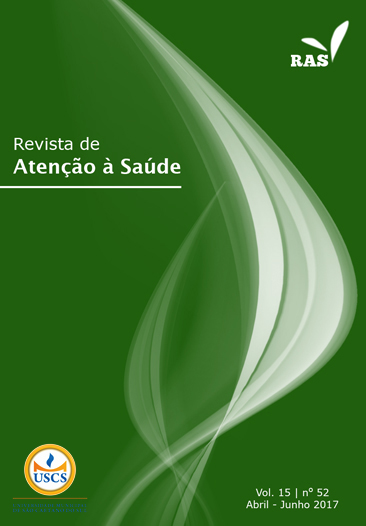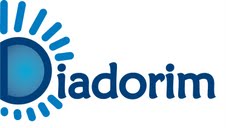Nursing professionals’ knowledge of humanized care in a neonatal intensive care unit
DOI:
https://doi.org/10.13037/ras.vol15n52.4434Keywords:
Humanization of assistance, Intensive care units, Neonatal, Nursing careAbstract
Objective: To identify the knowledge of nursing professionals working in a neonatal intensive care unit (Nicu) of the humanized care for newborns. Method: This is a quantitative and descriptive study, carried out in a Nicu of a hospital in the state of São Paulo, Brazil. The study subjects were 24 nursing professionals, including 6 nurses, 5 nurse technicians and 13 assistants. Data were collected through a questionnaire prepared from the theoretical framework of the Ministry of Health on Humanization. Results: Unanimously nursing professionals regard as humanized care the use of techniques that mitigate pain when performing painful procedures. Other characteristics indicated by most of the professionals interviewed were to sanitize and warm their hands when touching the baby and to minimize sounds and noises to improve comfort. Yet, the less identified characteristics were allowing all family members to touch the baby and resoluteness. Conclusion: The nurses understand humanized care as an important practice to be held every day with the newborn and his or her family, however, few answered that they know about the powers and duties that they should have regarding the newborn care and the level of resoluteness that is an important part of humanized care.
Downloads
References
Brasil. Ministério da Saúde. Programa Humanização do
Parto: humanização no pré-natal e nascimento. Brasília,
DF: Ministério da Saúde; 2002.
Brasil. Ministério da Saúde. Humanização do parto e do
nascimento. Brasília, DF: Ministério da Saúde; 2014.
Sá Neto JA, Rodrigues BMRD. Tecnologia como fundamento
do cuidar em Neonatologia. Texto Contexto Enferm.
;19(2):372-77.
Caetano JA, Soares E, Andrade LM, Ponte RM. Cuidado
humanizado em terapia intensiva: um estudo reflexivo. Esc
Anna Nery R Enferm. 2007;11(2):325-30.
Martins CF, Fialho FA, Dias IV, Amaral JAM, Freitas SC.
Unidade de terapia intensiva neonatal: o papel da enfermagem
na construção de um ambiente terapêutico. R Enferm
Cent O Min. 2011;1(2):268-76.
Cruvinel FG, Pauletti CM. Formas de atendimento humanizado
ao recém-nascido pré-termo ou de baixo peso
na unidade de terapia intensiva neonatal: uma revisão. Cad
Pós-Grad Distúrb Desenvolv. 2009;9(1):102-25.
Centa ML, Moreira EC, Pinto MNGHR. A experiência
vivida pelas famílias de crianças hospitalizadas em uma unidade
de terapia intensiva neonatal. Texto Contexto Enferm.
;13(3):444-51.
Rocha DKL, Ferreira HC. Estado da arte sobre o cuidar
em neonatologia: compromisso da enfermagem com a
humanização na unidade de terapia intensiva neonatal.
Enferm Foco (Brasília). 2013;4(1):24-8.
Reichert APS, Lins RNP, Collet N. Humanização do cuidado
da UTI neonatal. Rev Eletr Enf [Internet]. 2007 [citado
em 2014 jun 17];9(1):200-13. Disponível em: https://goo.
gl/6Rndbe
Vancini A, Luz IP, Fonseca IAC, Barros MMA. Higienização
das mãos na unidade de terapia intensiva neonatal. Rev
Intertexto. 2014;1:1-14.
Weich TM, Ourique AC, Tochetto TM, Franceschi CM.
Eficácia de um programa para redução de ruído em unidade
de terapia intensiva neonatal. Rev Bras Ter Intensiva. 2011;
(3):327-34.
Conselho Nacional dos Direitos da Criança e do
Adolescente. Resolução Conanda nº 41, de 13 de outubro
de 1995. Aprova em sua íntegra o texto oriundo da
Sociedade Brasileira de Pediatria, relativo aos Direitos da
Criança e do Adolescente Hospitalizados. Diário Oficial da
União. Brasília, DF; 17 out 1995. Seção 1, p. 16319-20.
Brasil. Ministério da Saúde. Portaria GM nº 930, de 10 de
maio de 2012. Define as diretrizes e objetivos para a organização
da atenção integral e humanizada ao recém-nascido
grave ou potencialmente grave e os critérios de classificação
e habilitação de leitos de Unidade Neonatal no âmbito do
Sistema Único de Saúde (SUS). Diário Oficial da União.
Brasília, DF; 11 maio 2012. Seção 1, p. 138-40.
Santos LM, Ribeiro IS, Santana RCB. Identificação e tratamento
da dor no recém-nascido prematuro na Unidade de
Terapia Intensiva. Rev Bras Enferm. 2012;65(2):269-75.
Brasil. Ministério da Saúde. Núcleo Técnico da Política
Nacional de Humanização. HumanizaSUS: Política
Nacional de Humanização. Brasília, DF: Ministério da
Saúde; 2004.
Baptista SS, Alves VH, Souza RMP, Rodrigues DP, Cruz
AFN, Branco MBLR. Manejo clínico da amamentação:
atuação do enfermeiro na unidade de terapia intensiva neonatal.
Rev Enferm UFSM. 2015;5(1):23-31.
Oliveira B, Riegel F, Siqueira DS, Predebon CM.
Humanização da assistência de enfermagem em unidade
de terapia intensiva neonatal. Rev Enferm UFPI.
;3(2):98-102.
Rocha MCP, Carvalho MSM, Fossa AM, Rossato LM.
Assistência humanizada na terapia intensiva neonatal: ações
e limitações do enfermeiro. Saúde Rev. 2015;15(40):67-84.
Downloads
Published
Issue
Section
License
Policy Proposal for Journals offering Free Delayed Access
Authors who publish in this magazine agree to the following terms:
- Authors maintain the copyright and grant the journal the right to the first publication, with the work simultaneously licensed under a Creative Commons Attribution License after publication, allowing the sharing of the work with recognition of the authorship of the work and initial publication in this journal.
- Authors are authorized to assume additional contracts separately, for non-exclusive distribution of the version of the work published in this magazine (eg, publishing in institutional repository or as a book chapter), with the acknowledgment of the authorship and initial publication in this journal.
- Authors are allowed and encouraged to publish and distribute their work online (eg in institutional repositories or on their personal page) at any point before or during the editorial process, as this can generate productive changes, as well as increase impact and citation of the published work (See The Effect of Open Access).









